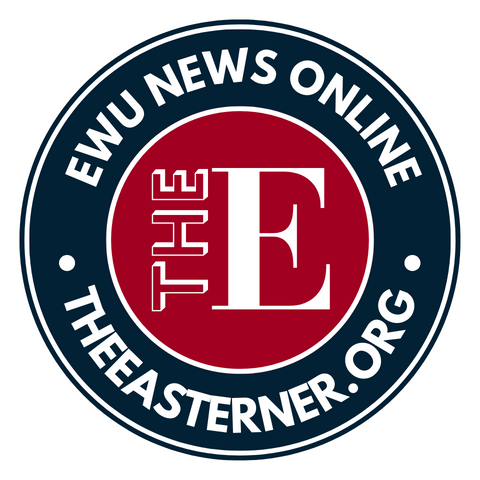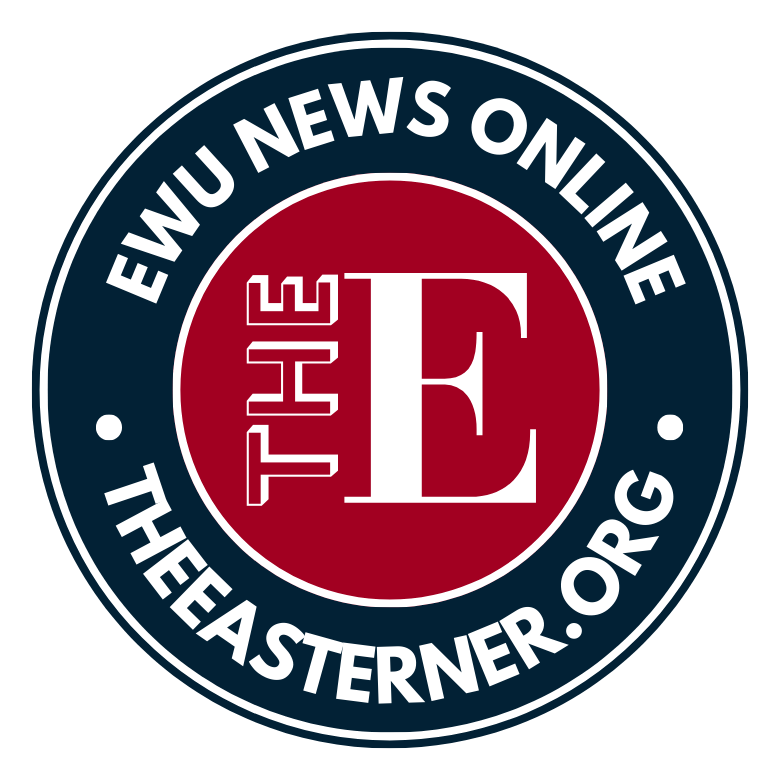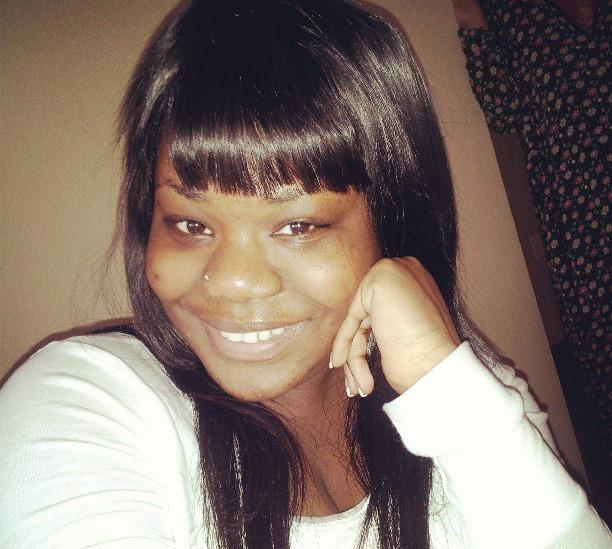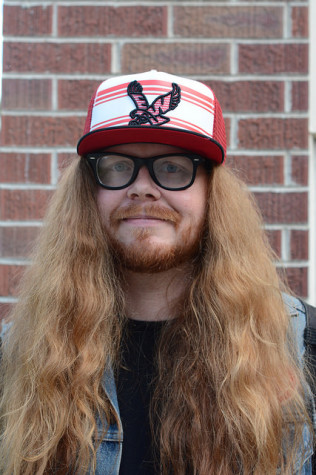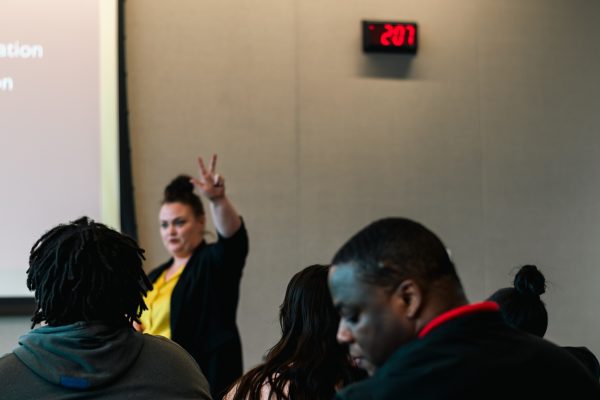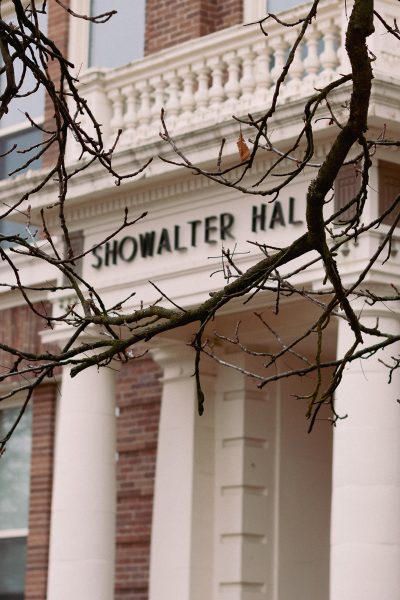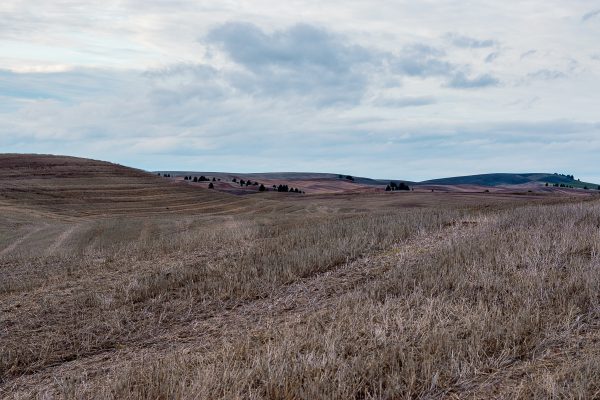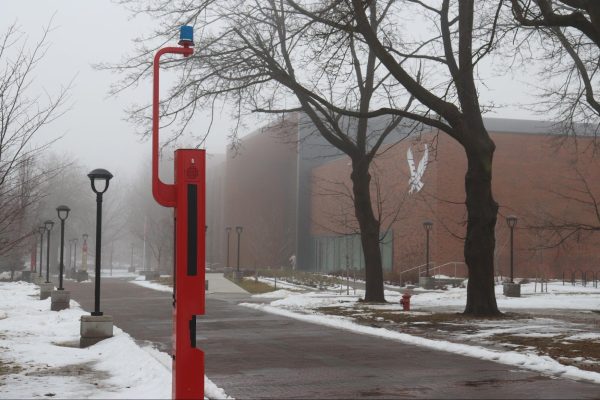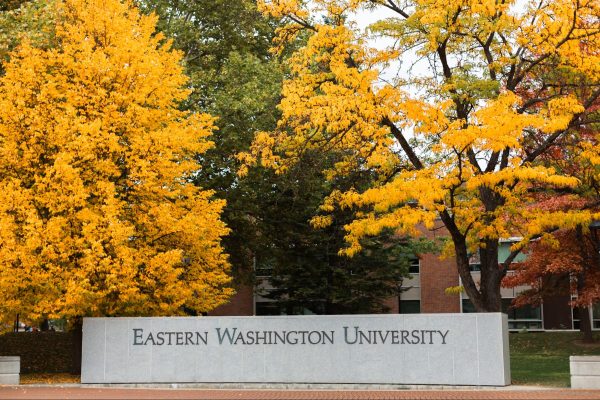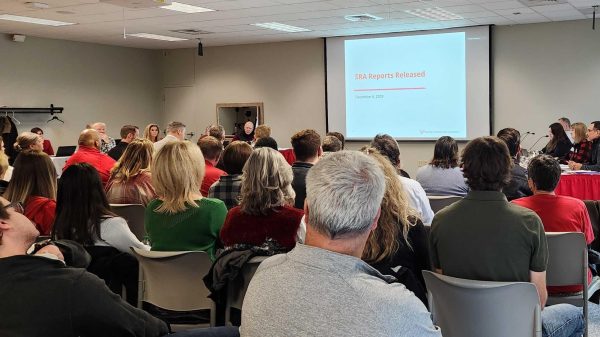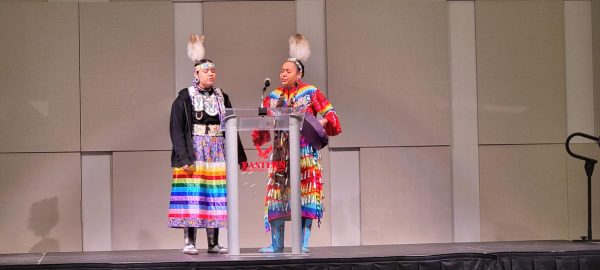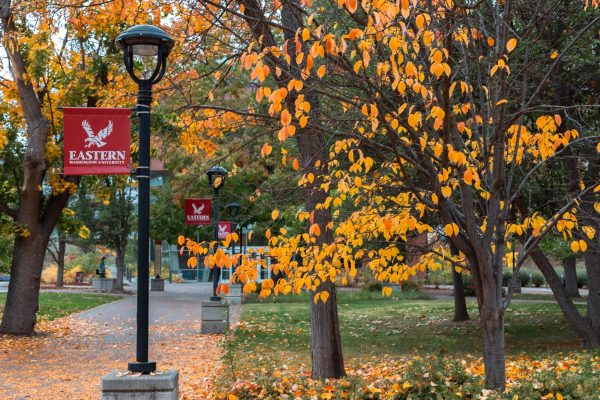Eastern alumna returns to Africa
March 5, 2014
When she was just four years old, Hawa Hussein and her family were forced to flee Somalia as political refugees.
For the next few years, they lived in refugee camps in Kenya. In 1998, just after her ninth birthday, Hussein and her family left Africa to make a new home in the United States, a place that seemed a world away.
Sixteen years later, she will be leaving her home again — this time to return to Africa as a Peace Corps volunteer
On March 3, Hussein will be flying to Philadelphia, Pa., for staging and will arrive in Johannesburg, South Africa on March 6.
Her final destination is Malawi, where she will be a community development adviser for HIV and AIDS.
The story of her Peace Corps experience actually started almost three years ago.“This journey didn’t just begin. It began way back when I was at Eastern,” she said.
At the 2011 career fair, Hussein spoke to a Peace Corps recruiter. She said ever since then, she was interested in going to another country to help people, and going back to Africa to help women had always been on her mind.
“I kept getting emails and stuff,” said Hussein. “And my senior year, I didn’t apply to grad school, I didn’t know what I wanted to do. Then I heard from a friend that he was going to Madagascar for Peace Corps, and I was like, ‘Oh my God, the Peace Corps.’ At that moment, I was like, ‘Why did I not think of that?’”
Mayra Nowakowski, Peace Corps recruiter and representative for Eastern Washington and Northern Idaho, said when a Peace Corps volunteer goes to another country, he or she takes a piece of America with them and gives it to the people in that country. When the volunteers return, they bring a little piece of that country back with them.
It is a cross-cultural exchange that Hussein has experienced before. But the first time, she did it backwards.
“I spent most of my childhood in Africa in the camps in Kenya, until I was 8 years old, so that’s where most of my memories of Africa are,” said Hussein. “We came from a very hot place, to a very cold place. It was during the winter that we arrived in Colorado. It was so cold. It was just horrible.”
She said learning English was one of the most difficult challenges for her family, though it was much easier for her than for her parents.
When she was 11, her family moved permanently from Colorado to Seattle.
Hussein graduated from Garfield High School in 2008. She felt like her life was a blank slate, ready to be chalked up.
She always wanted to go to college, but did not know where, or how, she would get there. After high school, a guidance counselor at College Access Now, a resource for low-income students in Seattle, directed Hussein to go to Eastern. She applied, and in July 2008 she was accepted.
One of her primary advisers, Dr. Dorothy Zeisler-Vralsted, EWU professor of government, remembers Hussein well.
“Hawa [Hussein] was my student in several of my classes,” Zeisler-Vralsted said. “Hawa [Hussein] has an outgoing, gregarious personality, never lacking for a sense of humor.”
By the time she graduated in 2013, she had earned two bachelor’s degrees in international affairs and business and had actively participated in the ASEWU Superior Court.
In May 2013, she started her application to the Peace Corps. “I heard back from them on June 25, [2013]. They called me, and then the next week I had an interview,” Hussein said. “They told me upfront that I got nominated but that there would be an official letter in my email coming up.”
Lately, Hussein said things have been falling into place, though she had to struggle over many obstacles to get where she is at now.
She still remembers the pain of countless shots that made her feel sick and having to pay out of pocket for an expensive teeth cleaning, only to find out she needed to have a wisdom tooth extracted.
Not having insurance for her first round of medical expenses was the worst part. She tried using http://www.gofundme.com to raise some money but ended up relying mostly on sliding scales and her own savings to pay for most of it. She now has insurance through the Affordable Healthcare act, and she says things are looking up.
She applied as a volunteer at Lifelong AIDS Alliance in Seattle to gain some job experience.
“Everything has been going so smoothly,” said Hussein. “The timing of everything, the timing of me getting my job, it’s just so weird how everything has played out.”
Hussein said even though everything is right on track, she still has worries.
“I’m not really sure where I will be placed, or where my site will be, but they said there will be clinics that we will be going to. I don’t know, it’s a double feeling,” said Hussein. “It is a good feeling, but also a frightening feeling, because I fled that place 16 years ago, and I’m going to be there, you know?”
Hussein said she knows that her experience will be different than that of most volunteers. She said coming from Africa to America, and now going back, has her thinking about her identity more than ever.
“I’m not going to be perceived as Somalian. I’m going to be perceived as African-American or American. It’s like I will have a different identity than how I actually identify.”
When she was volunteering at Lifelong AIDS Alliance with African people, she realized some of their expectations did not fit with her adopted American values. At her age, they said, a woman should be married, raising a family and taking care of the home.
“What I’ve learned is not to have expectations of how people will be,” Hussein said. “I know there will be gender differences and how I will be treated just because I’m a woman. I don’t know how I will be treated as an African woman going to Malawi for the first time ever.”
Nowakowski said Hussein is not alone in worrying. Though she is unique as an African woman returning to Africa. The other volunteers all had to learn the language, adapt to the climate and adjust to the culture.
As her mentor, Zeisler-Vralsted is proud of the work Hussein will be doing in Malawi.
“What Hawa [Hussein] is doing is important on several levels,” Zeisler-Vralsted said. “First, she will be contributing to an area in Africa where the average life expectancy for men is 52 and for women, 54. Second, she will be working in a country plagued with problems such as the spread of HIV and AIDS, ongoing corruption and a growing population, without the necessary infrastructure and resources.
“I have no doubt this experience will prepare her for a life of international service.”
Hussein said she has not even started packing for the trip but is already planning to write a book about her experience when she returns.
“It’s an adventure that I’m even just having dreams about,” said Hussein. “So you’ll have to stay tuned.”
